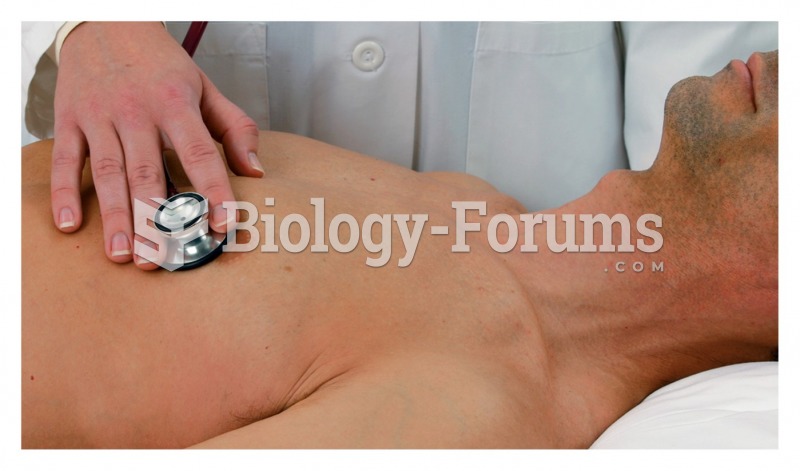|
|
|
People with high total cholesterol have about two times the risk for heart disease as people with ideal levels.
For about 100 years, scientists thought that peptic ulcers were caused by stress, spicy food, and alcohol. Later, researchers added stomach acid to the list of causes and began treating ulcers with antacids. Now it is known that peptic ulcers are predominantly caused by Helicobacter pylori, a spiral-shaped bacterium that normally exist in the stomach.
Most childhood vaccines are 90–99% effective in preventing disease. Side effects are rarely serious.
In most cases, kidneys can recover from almost complete loss of function, such as in acute kidney (renal) failure.
Ether was used widely for surgeries but became less popular because of its flammability and its tendency to cause vomiting. In England, it was quickly replaced by chloroform, but this agent caused many deaths and lost popularity.







